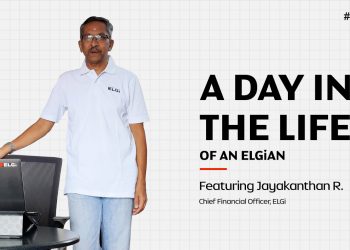Empowered employees help achieve business goals
Enabling individuals to think, behave, act, control, work and make decisions.

Ensuring your employees feel involved and a key part of the decision-making process, is a key step towards continuous process improvement. At the heart of TQM, lies the concept of intrinsic motivation-involvement in decision making by the employees. In today’s competitive business environment, employee involvement is key to not just empowering members of an organization to make decisions but also to solve problems appropriate to their levels in the organization.
“No company, small or large, can win over the long run without energized employees who believe in the mission and understand how to achieve it. ~Jack Welch, General ElectricRead now to learn more about what makes empowerment the new buzz word, in the changing participative style of management.
Undeniably, empowering employees is closely knit to creating a company culture that people love. When people work in a nurturing environment, they deliver better results, and therefore make customers happy. What is key to developing a culture focused on empowering your employees is understanding the contribution of each worker, and their role in taking care of the needs of the customers they serve.
So, just how do you go about building up to empowering your employees? From an employee perspective, empowerment is the process that enables individuals to think, behave, act, control work and make decisions in autonomous ways. While leaders and managers relinquish some of their authority over decision-making; empowerment diffuses these responsibilities, so the ownership is now on the employees to set goals, critique their performance and take pride in their work. Now when this is tied in to developing and supporting the advancement of the employee’s careers, every individual begins to use their skills to the maximum, promoting the overall spirit of accountability.
Dr W. Edwards Deming, the father of Total Quality Management, was a strong advocate of creating a positive environment for employees. According to him, the management’s overall aim should be ‘to create a system in which everybody may take joy in his or her work. Of the 14 principles of TQM advocated by Dr Deming, 9 are centred around employee empowerment- from instituting on-the-job trainings, vigorous education and self-improvement programs to creating an environment without barriers and fear. The principles advocate an employee model which encourages active participation in the transformation process.

Employee empowerment - a case study in Total Quality Management
Over the years, there have been multiple studies conducted to understand the impact of employee empowerment in the success of a total quality management system. Enhancing customer satisfaction, employees are encouraged to use their expertise and knowledge to suggest methods of improvements; these suggestions could relate to the job, product and company.
As organisations shift towards a participation-style of management, find out how you can implement TQM towards the collaboration of your team and contribute towards employee efficiency.
Boosts Morale and Confidence
With a sound empowerment system, employees get access to superior training and mentorship from senior leaders. With the right training along with monitoring and feedback, employees develop confidence to take up diverse responsibilities.
Enhanced Productivity
In a TQM system where employee centricity is paramount, employee productivity and work ethic are higher. As the job role of each employee diversifies, it makes them independent and creates an environment of idea sharing and collaboration.

Innovation
Due to an increase in autonomy and productivity, employees become problem solvers. They come up with innovative solutions, which can be optimally utilised to enhance production efficiency, thereby boosting economies of scale.
Team Cohesion
After the implementation of a sound employee empowerment system, the employees successfully establish stronger relationships with each other and their managers, resulting in a closely bonded team. This environment ensures better collaboration.
Longevity
Once the employee empowerment system is established as part of Total Quality Management, employees develop a sense of belonging, understanding their contribution towards the organisation, or in other words, a sense of loyalty is developed wherein you become advocates of your work, and that of the organisation.
This loyalty continues even after retirement. The employees become mentors to newer employees and help foster long-lasting bonds with the organisation.
At ELGi, every team member contributes towards building an organisation of driven and empowered employees focussed on getting results and meeting customer requirements across the world. . When employees strive to be Always Better, we are all in sync with the values of ELGi that propagate an ideology of Always Better.
ELGi was recently conferred with the Deming award in Total Quality Management in Japan, where our Managing Director rightly credited the win to every ELGi employee across the world saying, “I would like to dedicate this award to our employees, who are the key stakeholders in our company.”
The Deming Prize achievement was not the contribution of a single person, or a small group of people. Every single ELGi employee has had a role to play in winning the Deming 2019 prize and the win was a celebration of the organization wide commitment to upholding a quality-first approach in their work.
To know more about careers at ELGi, write to [email protected]




